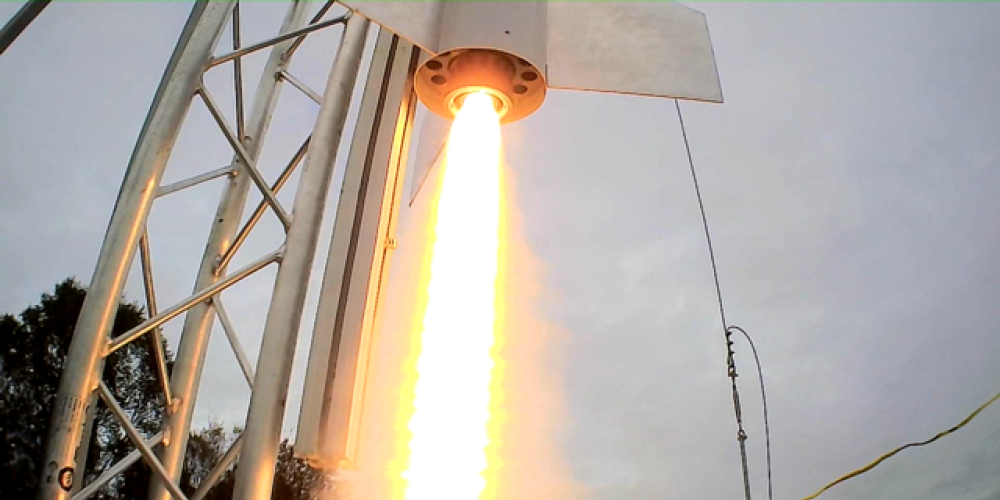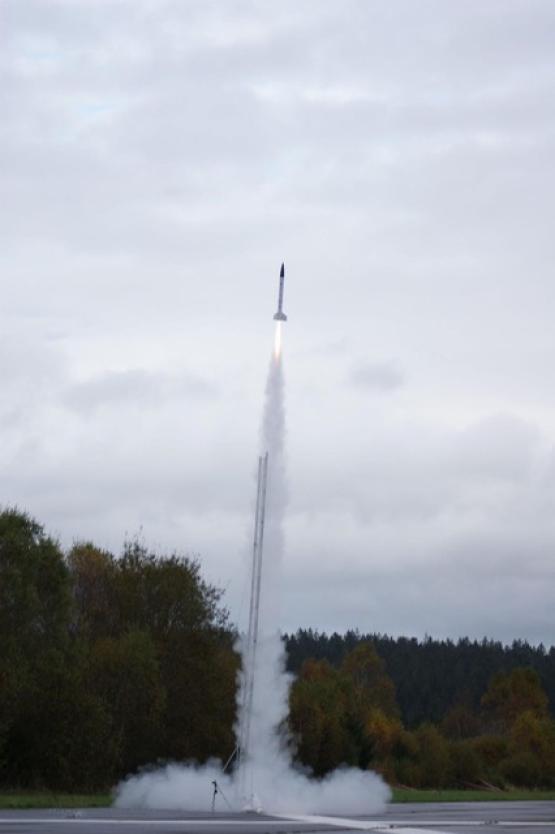
An inter-university team, Be-Rocket, has successfully launched its first rocket. This was a test launch, with the rocket reaching a planned altitude of one and a half kilometres before landing back on Earth at a predetermined location—an impressive achievement. The rocket was constructed using readily available commercial components. The Be-Rocket team was founded through a collaboration between VUB (Vrije Universiteit Brussel), KU Leuven, and the Royal Military Academy, and also includes members studying in Liège, Mons, Bruges, and at ULB, VUB's sister university in Brussels.
“All major universities have a rocket team,” says VUB project coordinator Aurélie Bellemans. “We were the first in Belgium to start one last year, and soon after, interested students from other universities joined us. With our team, we aim to compete in the EuRoC competition in the near future. In this competition, you must launch a rocket to an altitude of three or nine kilometres with a payload. For us, that payload will be a small cubesat from the student team Aetherspace.”

“Being Part of the Be-Rocket Team Has Brought Me Many Valuable Experiences, Where I’ve Been Able to Learn and Discover New Things”
Last week’s launch was the team’s first test flight, taking place at the military site in Elsenborn with the support of the Royal Military Academy and under the supervision of the Belgian Army. “Our rocket is our own design,” says Bellemans. “It flew on solid fuel to an altitude of 1.5 kilometres, exactly as planned. We also tested our own launch platform. There was a slight issue on landing, as only one of the two parachutes deployed, which caused some damage to the rocket. But overall, for a first test flight, it was certainly a success.”
Be-Rocket aims to introduce students from various disciplines to different areas of space technology early in their studies. For talented young students, it opens up a pathway to a career in the space sector, offering a unique opportunity to apply theoretical knowledge in a practical setting while developing valuable skills for their future careers. Collaboration with people from diverse backgrounds plays a key role in this. The Be-Rocket initiative serves as a powerful boost for everyone involved—from research institutions and students to the space industry itself—helping to strengthen the aerospace sector in Belgium.
“Being part of the Be-Rocket team has brought me many valuable experiences, where I’ve been able to learn and discover new things,” says VUB student Rafael Lodewyckx (Master’s in Industrial Sciences, 2024–2025). “Not only have I gained a lot of technical experience, but I’ve also had the chance to improve my soft skills by working in a large team of passionate students who all share the same enthusiasm and have a similar goal in mind.”
Next time, the team plans to launch a new rocket capable of reaching an altitude of three kilometres. This launch is scheduled for next year, with students designing and assembling the rocket in the VUB’s Fablab. They aim to participate in the EuRoC competition afterwards.
The Be-Rocket team consists of around thirty students, with over a third studying at the VUB. These include students in Civil Engineering and Industrial Engineering Sciences. From their first year of undergraduate studies, students are welcome to join the team as volunteers.